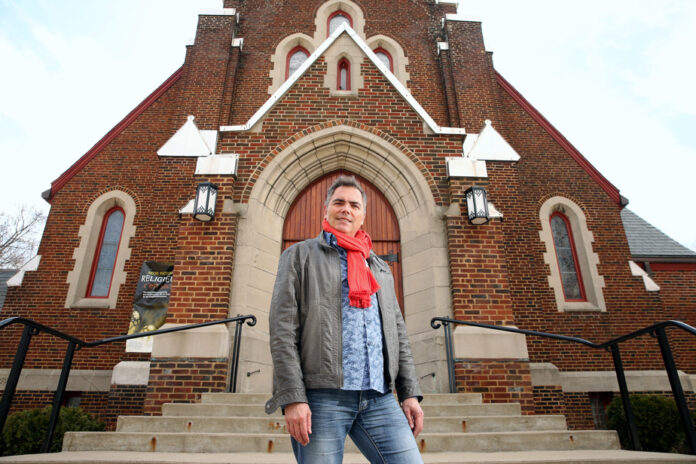Is it possible to present three new operas in Montreal in two weeks? Marc Boucher gives a positive answer to this question with his Nouvel Opéra Métropolitain (NOM), which will (re)create two French works from the 19th century and an entirely Quebec commission between May 31 and June 14.
“The objective is to make, within three to five years, a real metropolitan opera festival in June, therefore a complementary offer to the seasons of other organizations”, explains the baritone and musical entrepreneur behind the NOM, recently created in parallel with its Festival Classica.
Complementary to the programming of the Opéra de Montréal in particular, and this, on several levels, including that of costs. “We’re starting small, within our means,” agrees Marc Boucher.
These means are limited to a few – essential – subsidies and a contribution from the public that he wants to keep up to the level of the average music lover’s ability to pay. No question, therefore, of adopting the dynamic pricing recommended by the Opéra de Montréal.
“It is not part of the values of our non-profit organization. From the moment this business model is imposed, we enter into a logic which, in the long term, will put pressure so that the programs meet the financial requirements of the market”, warns the general and artistic director of the Festival Classica, which has been keen to keep its prices within a range of $10 to $35.
“Because we are a subsidized organization, we must maintain artistic independence,” he says. This will allow for example to present, in 2025, Les mamelles de Tirésias [by Poulenc], and next year Der Kaiser von Atlantis [by Ullmann], works which, in a commercial logic, would not be considered. »
The productions, presented at the Salle Claude-Champagne of the University of Montreal, remain modest on the stage. Marc Boucher speaks of “augmented” concert versions, which involve musicians on stage, and not in a pit, but also an absence of “hard” sets.
“We wanted to dematerialize the sets and have costumes that come from recycled textiles. We are really in a circular economy model that puts voices in the foreground in an environment on a human scale, ”summarizes the main interested party.
The concern for carbon neutrality also pushes the organization to recruit from the pool of Quebec singers. Twenty-two of the twenty-five roles in the three operas presented this year are from here. And some are involved in more than one production, all presented for a single evening.
This is particularly the case with The Man Who Laughs (May 31), a grand opera lasting more than two hours commissioned by the NOM from Airat Ichmouratov, a Quebec composer of international reputation, who wanted to work on the novel by the same name of Victor Hugo. There will sing, among others, Jean-François Lapointe, Hugo Laporte, Magali Simard-Galdès and Marc Boucher himself.
The latter says the work is imbued with “a very Puccinian post-romanticism evoking at the same time Stravinsky, Mussorgsky and Ravel”. “It’s a numbered opera, a construction very close to Puccini’s Turandot. »
Next, on June 6, will be the short operetta L’adorable Belboul by Massenet, a “turquerie” found in London in 2017, the recreation of which will feature French mezzo-soprano Pauline Sabatier. “We are in a fantasy East that inspired many composers in the 19th century, describes the baritone. As in Cosi fan tutte, it is feminine intelligence that triumphs over a certain masculine obscurantism. »
This lyrical mini-festival will culminate in the creation of a forgotten work, Miguela by Théodore Dubois, better known for his sacred music (his Seven Words of Christ among others) than for his operas. Twelve soloists will be on stage, including soprano Myriam Leblanc in the title role and Montreal tenor Emmanuel Hasler in that of Martigny, a sort of Don José.
Marc Boucher confirms that it is a score “very inspired by Carmen, tapping into an eternal theme: improbable love in times of war”.
The perhaps less improbable love of the administrator and singer for lyrical creation will certainly give Montreal some of its most daring operatic moments in recent years.

